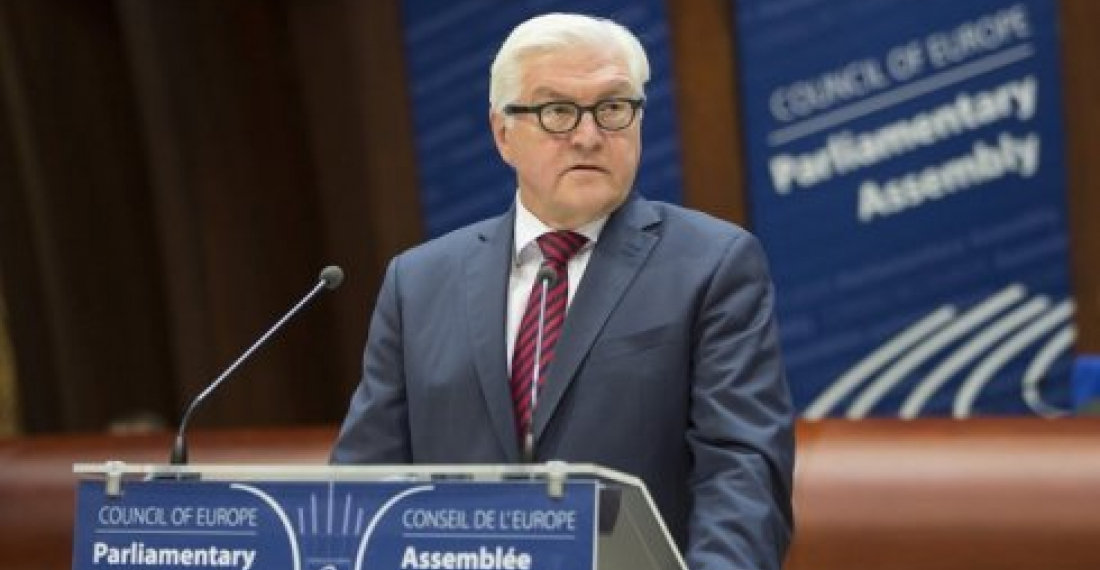German Foreign Minister, and current Chairman-in-office of the Organisation for Security and Co-operation in Europe (OSCE), Dr Frank-Walter Steinmeier, on Thursday addressed the Parliamentary Assembly of the Council of Europe, meeting at its autumn session in Strasbourg. Referring to Abkhazia, South Ossetia, Trandniestr and Nagorno-Karabakh the German Minister said on the European continent there should not be any blind spots for monitoring human rights.
In his speech the German Foreign Minister made a spirited defence of human rights and said that the Council of Europe provides a human rights defence bedrock to all the 47 Council of Europe states. It is not only a guardian of standards but has a role to play at a time of crisis. Steinmeier said that he is a lawyer and realist and he accepted that rules get broken. But he said the fact that there are currently 76,000 cases in front of the European Court for Human Rights is striking.
There are parts of Europe where the values and standards of the Council of Europe, human rights and the rule of law, are under severe pressure.
Freedom of expression and freedom of assembly are subject to huge curbs in some member states: civil society critics are subject to smears and intimidations, minorities are finding huge curbs on their rights critics subject to questionable charges.
Steinmeier spoke of the crisis in Ukraine, and said what happened there was unimaginable, and Germany was working with France and Russia to try to resolve the crisis. The Council of Europe said the Minister cannot stand by in the face of serious violations, and he welcomed the contribution of the Council of Europe in Ukraine's democratic transformation.
The Minister said that the Council of Europe is trying to secure access to Crimea to monitor the human rights situation there.This was important and similarly this goes also for South Osssetia, Abkhazia, Transdniestr and Nagorno-Karabakh. "On our continent there should not be any blind spots for observing human rights", said the Minister.
source: commonspace.eu
photo: Foreign Minister Frank-Walter Steinmeier at the Parliamentary Assembly of the Council of Europe






